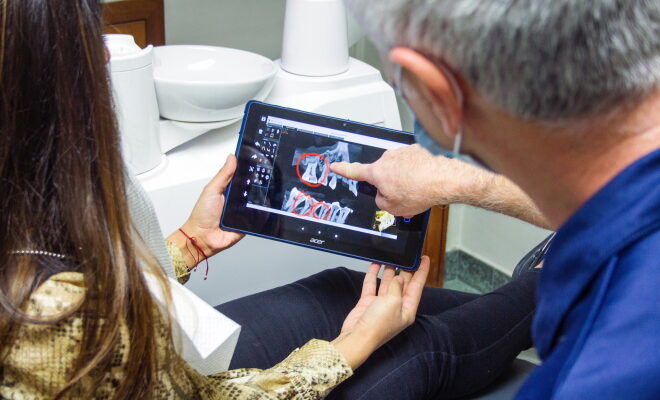
Health x Wellness
What to do if I have Bruxism and clench and grind my teeth repetitively?
Bruxism has become a more prominent issue in oral healthcare, and is the condition where a person repetitively clenches and grinds their teeth. There are both medical and lifestyle implications. Children can also be affected by this condition.
Stress and anxiety are common factors of Bruxism, where jaw muscles increase in tonicity, and might result in clenching and grinding of teeth.
This condition can keep people awake at night as they grind their teeth resulting in poor sleep patterns. While this oral problem has become increasingly more common, the causes and management of bruxism are not easily understood.
We had a discussion with Professor Chua Ee Kiam, a Senior Consultant of
Prosthodontics from the Department of Restorative Dentistry, National Dental Centre Singapore about what is Bruxism, who do we turn to for help, and how to reduce or remove the condition.
the Active Age (AA): What is bruxism, and is this a condition that people should be worried about?
Professor Chua Ee Kiam (CEK): Bruxism is the repetitive, parafunctional jaw muscle activity that is characterised by the unconscious clenching or grinding of teeth.
The forces exerted during bruxism far exceeds the forces exerted during regular jaw functions, such as eating. Over time, the damage is accumulated and can affect the oral tissues.
Patients who grind their teeth at night tend to produce a loud noise as the upper and lower teeth gnash against each other, which in turn results in their sleeping partners complaining about interrupted sleep.
AA: What are the common symptoms of bruxism, and if we observe it in a family member or a child, who do we turn to for help?
CEK: Many people exhibit bruxism sometime in their lives which are often self-limiting, and with minimal damage to the oral tissues.
In more severe cases, unintentional bruxing of teeth has deleterious effects on the teeth and jaw musculature such as jaw pain, clicking sounds, headaches, difficulty to open one’s mouth and chewing foods. Some common symptoms to one can look out for are fractured teeth or fillings, worn teeth and sensitivity to temperature changes.
During regular dental appointments, the dentist will usually look out for signs of bruxism. For less severe cases, the dentist may come up with a treatment plan, and for more severe cases, patients may be referred to specialists.
In most cases, parents are the first to identify bruxism in their children. However this is self-limiting as their jaws are not fully developed and their jaw bones are more elastic, which can provide more resilience to the grinding forces unlike adult jaw bones. Most children will outgrow sleep bruxism, but it is recommended to be monitored by a dentist. A paediatric dentist can help develop a plan to treat bruxism and stop teeth clenching.
AA: What are the common factors/scenarios that trigger or lead to bruxism?
CEK: Stress is the most common trigger for bruxism. However, it is not uncommon for patients to claim that they are not stressed. By investigating further and providing a safe space for patients to express their concerns, it will often reveal a number of underlying issues.
AA: What is the impact of bruxism on a person, whether medically or lifestyle?
CEK: Eating chewy and harder foods can be problematic for patients who experience bruxism, even simple functions such as opening ones mouth to enjoy a hamburger can be painful.
Those suffering from jaw pain tend to socialise less as talking and eating makes the discomfort more unbearable. At times, the clicking sounds can be heard from afar whilst talking, which a patient may feel ashamed or embarrassed.
AA: How can people suffering from bruxism reduce or remove the condition?
CEK: There are a few steps that may prevent or help treat bruxism, such as a balanced lifestyle, avoiding stimulating substances in the evening, practising good sleeping habits and scheduling regular dental exams.
An important component is to speak with your dentist or doctor to find out which treatment plan works best for you.
AA: What should people living together (e.g. partner, family member, caregiver, etc) with someone suffering from bruxism know?
CEK: A dental check-up can help detect oral health issues early, family members, partners and caregivers should recommend that the patient seek help from a dentist once they notice that they are regularly grinding their teeth.
It is also important to observe ones general dental health, daily routines and sleep habits so that the issue can be treated early.
Photo by Quang Tri NGUYEN on Unsplash









